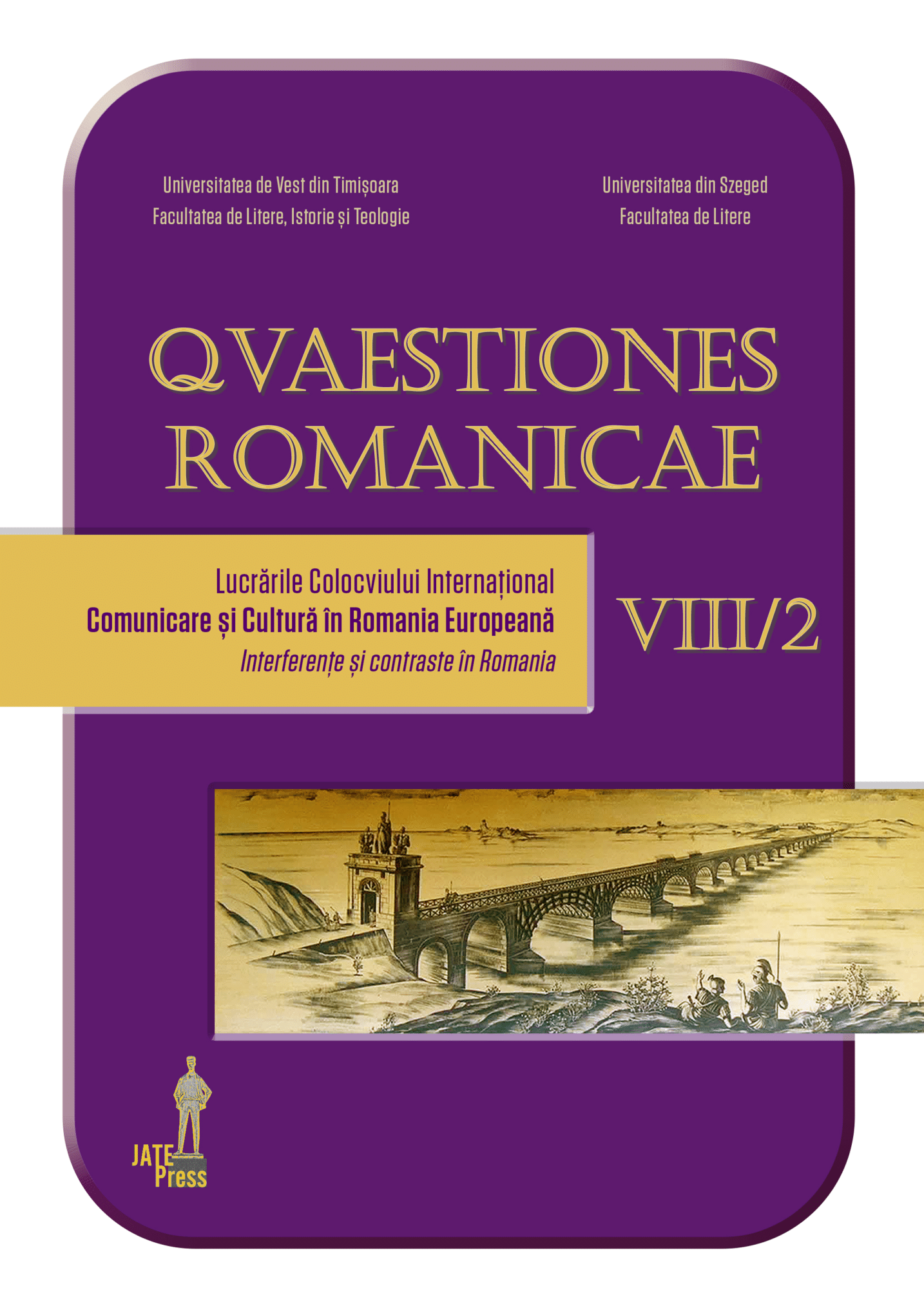Atitudinea Marilor Puteri europene faţă de crizele internaţionale majore din anii 1938-1939, reflectată în paginile cotidianului bănăţean Vestul. Studiu de caz: Anschluss-ul
The Attitude of the European Powers against the International Crisis of 1988-1939, Reflected in the Banat Newspaper “The West”. Case Study: The Anschluss
Author(s): Eusebiu NaraiSubject(s): Interwar Period (1920 - 1939)
Published by: Universitatea de Vest din Timişoara
Keywords: Great Powers;international crises;Banat;West newspaper;Sever Bocu;
Summary/Abstract: A press body of the National Peasant Party, the West newspaper, founded by Sever Bocu, the leader of the Banat organization, in the town of Bega, in 1930, will surprise in his pages, with great accuracy, the place of the Great Powers against the international crises in the years 1938-1939: the Anschluss, the annexation of Austria to National Socialist Germany, prepared in February 1938, following talks between von Papen (German Chancellor Deputy) and Schuschnigg (Austrian Chancellor), and the audience of the Hitler, and materialized on March 12, 1938; the Sudeten crisis, resolved through the ,,mediation” of Germany and Italy, assisted by France and the United Kingdom, which, through the conciliatory promotion, ,,gave” this province from the south of the Czechoslovak state, founded in 1918, with a majority population German, Third Reich, through the Munich Agreement (September 29, 1938); the Polish ultimatum addressed to the Czechoslovak government to surrender part of the Cieszyn mining region (September 30, 1938) settled in favor of Warsaw on 3 October 1938; the Hungarian-Czechoslovak negotiations started in Komarno (October 12, 1938), resolved by the Vienna agreement concluded at the end of October 1938), with only Germany and Italy being arbitrators, by the surrender of Slovakia and Ruthenia; the actual liquidation of the Czechoslovak state through the triumphal entrance of the Wehrmacht in Prague (March 15, 1939); the annexation of Albania by Italy, under the guise of a personal union, under the scepter of King Victor Emmanuel III (April 14, 1939); the attack on Poland by Germany (September 1, 1939), which marks the beginning of the Second World War.
Journal: Quaestiones Romanicae
- Issue Year: VIII/2020
- Issue No: 2
- Page Range: 203-221
- Page Count: 19
- Language: Romanian

